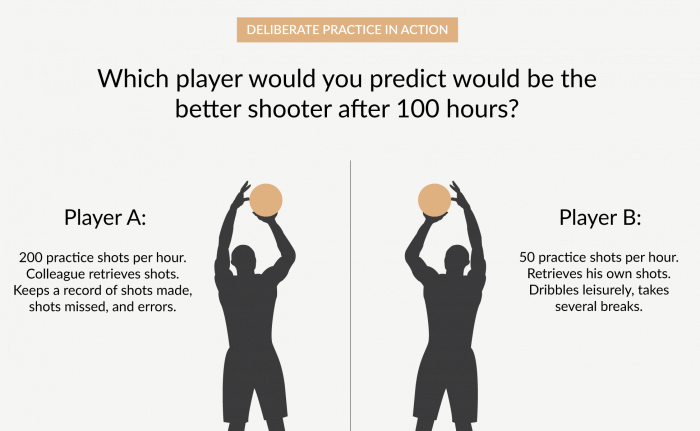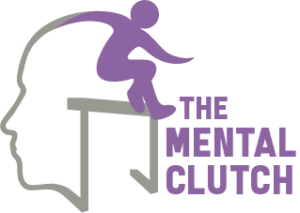Is grit developed due to the quantity of time devoted to one’s interests, or is it the quality of time? Angela Duckworth ponders this question in her book GRIT, wondering if it’s not just more time on a task, but also better time on a task that will make a difference when it comes to developing grit through practice.
What she found through her research was cognitive psychologist Anders Ericsson’s work on how experts acquire world-class skills, specifically how it takes about 10,000 hours of practice spread over 10 years to reach expert status. If you are not familiar with his work, it has gone viral because it provided us with a visceral sense of a scale of time that we need to invest in to become world-class. More insight into Ericsson’s work is that it doesn’t solely focus on logging hours of practice, but rather that experts also practice differently.
Unlike most of us, experts are logging thousand upon thousands of hours of what Ericsson calls deliberate practice. This form of practice includes stretch goals, zeroing in on just one narrow aspect of their overall performance. Experts also focus on improving specific weaknesses as well instead of focusing on what they are already good at. They also practice with undivided attention and great effort and strive to reach their stretch goals. They don’t do it for their fans, family, or others, they do it for themselves. They are completely intrinsically motivated to succeed.
Another aspect of their practice is that they are hungry for feedback, particularly negative feedback. They are eager to learn what they did wrong, rather than hearing what they did right. They are devoted to getting better, and they understand that in order to really excel they need to work on every weakness and poor part of their performance.
After they hear the feedback what do they do next? They continue the process over and over again. They continue practicing, staying focused, pushing outside their comfort zone, and seeking out feedback again and again, until they finally master the goal they were fighting after. Angela Duckworth states that they practice until “conscious incompetence becomes unconscious competence.”
And once that original stretch goal has been met? Well, experts then create a new stretch goal and continue the process all over again.

Maybe you’re not an expert in anything or feel you haven’t yet mastered a single stretch goal. The good news is that you can start. You can begin training differently, as an expert would and apply the steps I listed above to your own stretch goal.
Go on and start to practice with intention.
